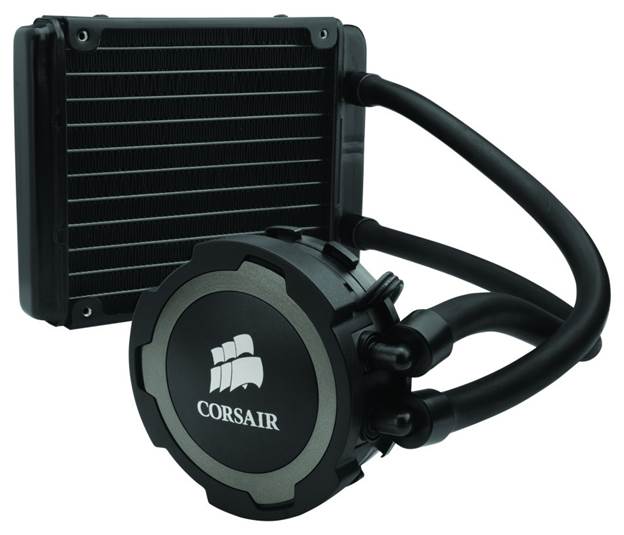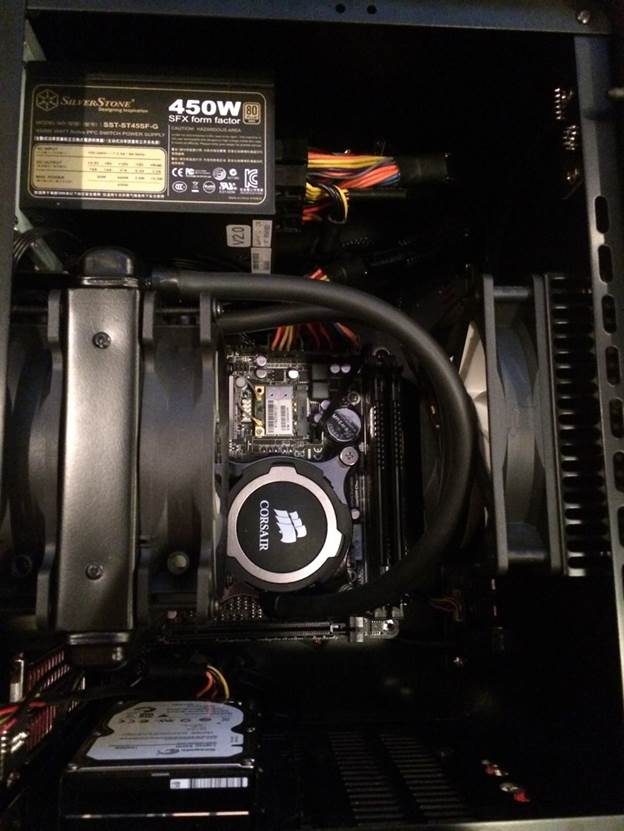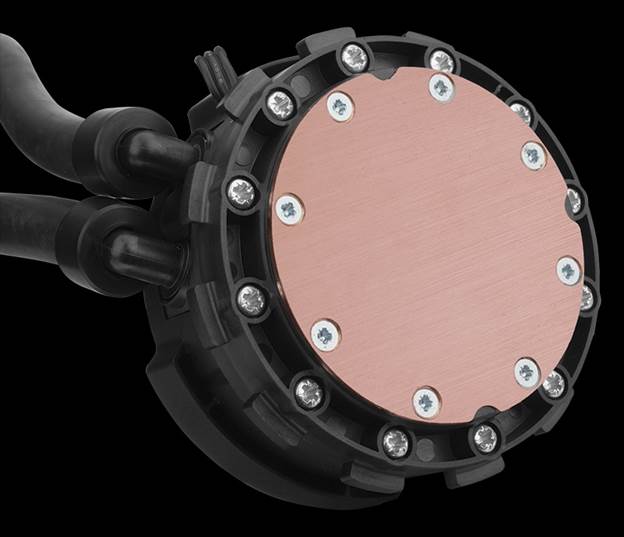CPU Water Cooler Corsair HYDRO Series H75
It turns out size does matter –
particularly in a mid-tower case
Corsair loves blowing hot air, and luckily
for us PC enthusiasts, the Californian Company channels that passion into the
CPU cooler market.

Slim 25mm radiator and dual PWM fans for
compact, customizable liquid CPU cooling
The Hydro series H75 liquid cooler shares
much of its DNA with the H105 tested last issue. But where the beefier H105
model fitted two 120mm fans along a 272.5mm radiator, for maximum heat
dispersal, the slimline H75 features a 120mm radiator and two fans on either
side. It’s a good solution for anyone who wants the cooling performance of the
larger model, but can’t fit it inside their mid-tower case.
The radiator itself has a low 25mm
profile, so even with a fan on either side there’ll be plenty of room for
installation in any mid-tower space or bigger, and enough clearance above most
RAM models. You only need to worry if your memory’s sporting particularly OTT
heat spreaders or worse, fans. The chief benefit of this updated H75 over its
H60 ancestor is the two-fan, one-radiator setup. It allows for a push-pull
config, sucking cold air in through the case and then pushing it into the
airflow of your other case fans.

Corsair Hydro Series H75 i7-4770k in
Jonsbo U2 mini ITX Build
Installation of the CPU block over the
mobo, as with the larger H105 model, couldn’t be easier. Despite this cooler
catering for a staggering array of chipsets, there’s minimal fiddliness to
contend with when installing the backplate or cradle. It even comes with a nice
spread of pre-applied thermal paste. Corsair’s design here is one of the best
around.
Affixing the radiator and fans to your
chassis (particularly the external screws that go through the case) is a bit
trickier, but still perfectly manageable without wrenching out any other
components. The tidiness, space-saving and thus increased airflow inside your
case is one of the boons of opting for a sealed liquid cooler unit.
Heat signature
The accolade for chief attraction belongs
to the increased longevity and potential overclocking headroom that one of
these puppies provides. The big difference between this and the H105 is in the
speed of heat dispersal – the H75 takes almost three minutes longer than its
big bro to return to its idle temperature (an impressive 27°C) from an equally
impressive 34°C with all cores of our Core i7 CPU maxed out and then left idle.
That’s the only drawback.

The coldplate draws heat from your CPU
into the circulating liquid.
It’s quite the overclocker, too – we
managed 5.12GHz with that same processor with minimal fuss in the BIOs, and
only a very slight tweak to the voltage settings. Antec’s single fan H2O 650
model also posted 5.12GHz, but required a bit more elbow grease in the BIOs to
run stable at that speed. Antec still has Corsair pipped in the fan noise
department, although the H75 is a bit quieter than the H105.
Overall it’s an impressive cooler for a
decent price. It’ll smarten up your rig, make fewer places for dust to
accumulate and keep your overclocked CPU on ice. With the H105 we had
reservations about fitting a whopping radiator inside a case, but the H75’s
radiator will fit pretty much anywhere.
|
Specifications:
·
Warranty: Five years
·
Cold Plate Material: Copper
·
Fan Specification: 120mm (x2)
·
Radiator Material: Aluminum
·
Socket Support: AMD AM2, AM3, FM1, FM2, Intel
LGA
1150, 1155, 1156, 1366, 2011
·
Tubing: Standard diameter, kink-resistant
tubing
|